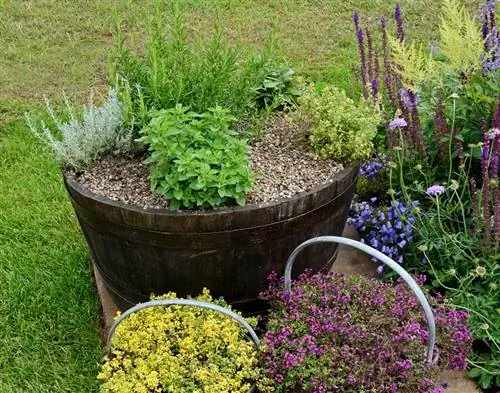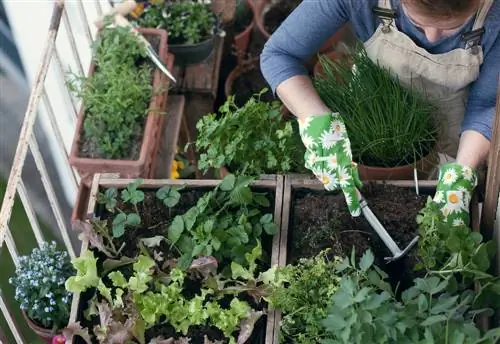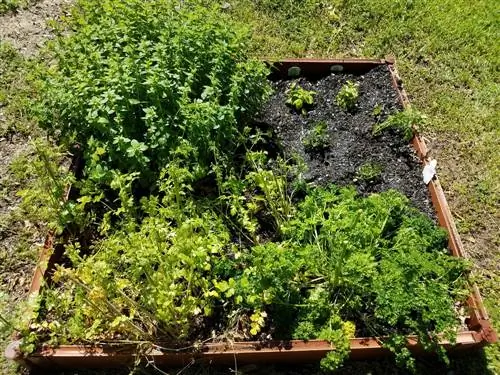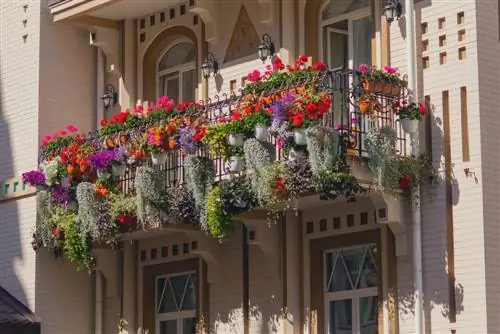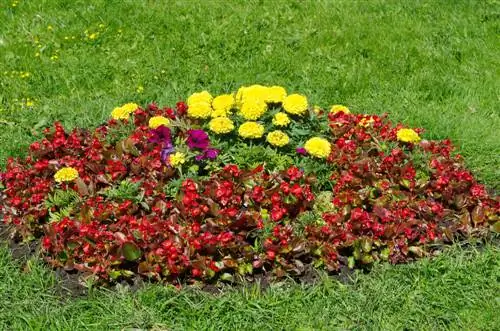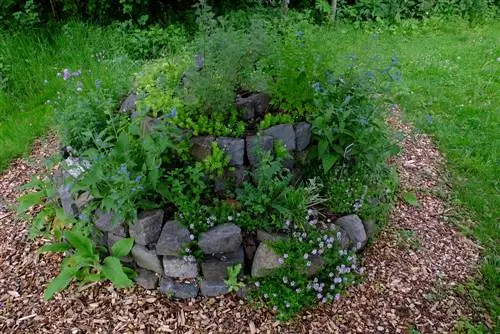- Author admin leonars@hobbygardeners.com.
- Public 2023-12-16 16:46.
- Last modified 2025-06-01 06:02.
Do you want to create a herb bed but don't have much space? Or just want to grow a handful of herb varieties? You can read in this article how best to create a herb bed in a handy small format.
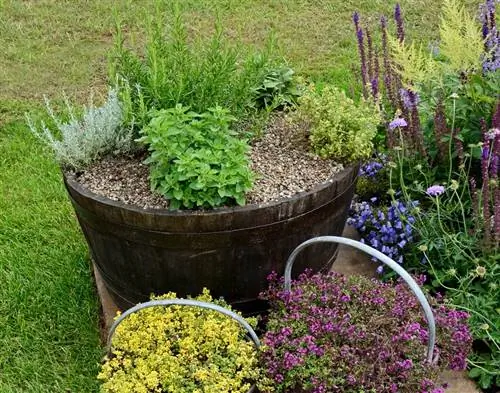
How do I create a small herb bed?
To create a small herb bed, choose a sunny location and plant well-tolerated herbs such as parsley, chives, chervil, oregano or thyme in a humus-rich substrate or a suitable herb combination.
A herb bed - but not too big
Herbs enrich the kitchen immensely and are currently very popular, not least because of their he althy power. With your own herb bed you can provide yourself with some of the aromatic delicacies completely self-sufficiently. However, if you cannot expand the system far due to lack of space, certain types of herbs can be cleverly arranged together even in a small space. Examples of ways to cultivate a mini herb bed include:
- small area in the outdoor bed
- Balcony box
- Wooden box on the windowsill
- Combi pot
The alternatives to the outdoor bed also have a nice decorative added value, especially on the balcony and terrace.
Organization of space - suitable types of herbs
The basic rule for a small herb bed is to avoid vigorous or space-intensive varieties such as lavender or lovage. On the other hand, herbs that are well suited for the mini bed are:
- parsley
- Chives
- Chervil
- Oregano
- Pimpinelle
- Thyme
- Coriander.
Location for the herb bed
For a small herb bed outdoors, choose a location that is as sunny as possible - because most types of herbs need a lot of light, especially Mediterranean herbs such as rosemary, thyme or oregano. Of course, the sun rule also applies to a mini bed on the balcony or windowsill.
The substrate
When space is limited, there is little room for different substrates - so opt for herb combinations with similar soil requirements if possible. A humus-rich substrate is particularly suitable for classic culinary herbs such as chives, parsley, chervil or tarragon, which have high nutrient requirements. Mediterranean herbs such as rosemary or thyme, on the other hand, prefer poor soil.
To be a good neighbor
In a small space, you should also pay particular attention to the compatibility of the herb types that are close together. In a small space, different character traits - like those of people - become even more noticeable. You shouldn't place them right next to each other:
- Basil and lemon balm
- Thyme and marjoram
- Fennel and coriander
- Dill and tarragon
they go well together:
- Rosemary and lemon thyme
- Pimpinelle and lemon balm
- Dill, parsley and chervil
- Chives, sage and tarragon
- Oregano and savory
- Parsley, chives and basil

